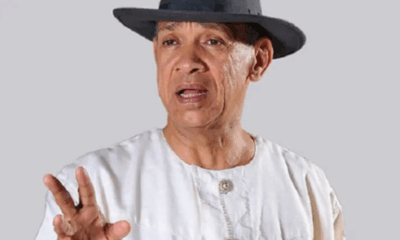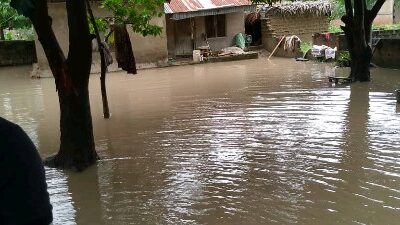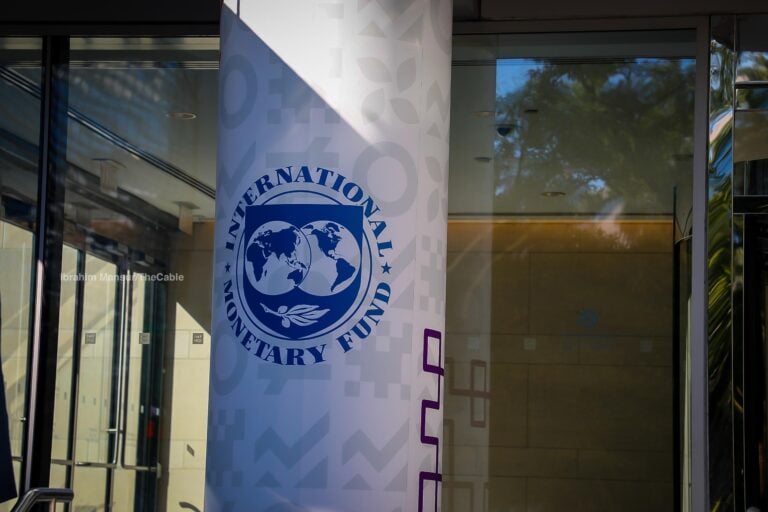The Federal Government will begin a nationwide flood awareness campaign in May 2025 to educate and sensitize Nigerians on the risks and safety measures related to flooding.
This was disclosed by the Deputy Director of the Department of Flood, Erosion Control and Coastal Management at the Federal Ministry of Environment, Mr. Kunle Awojemila, in an interview with our correspondent on Sunday.
The federal government revealed that approximately 1,249 communities across 176 local government areas in 30 states and the federal capital territory are expected to experience significant flooding between April and November this year.
Awojemila said, “We are starting the flood awareness sensitization campaign in the first week of May.
“In the FCT, we will begin in Dutse, then move to areas like Lokogoma, Lugbe, and others, consequently.
“Other states will commence their awareness campaigns as well.”
During the official presentation of the 2025 Annual Flood Outlook by the Nigeria Hydrological Services Agency in Abuja, the Minister of Water Resources and Sanitation, Prof. Joseph Utsev, listed the states at risk of flooding as Abia, Adamawa, Akwa Ibom, Anambra, Bauchi, Bayelsa, Benue, Borno, Cross River, Delta, Ebonyi, Edo, Gombe, Imo, and Jigawa.
Others include: Kebbi, Kogi, Kwara, Lagos, Nasarawa, Niger, Ogun, Ondo, Osun, Oyo, Rivers, Sokoto, Taraba, Yobe, Zamfara, and the Federal Capital Territory.
The minister emphasised that flooding remains one of Nigeria’s most devastating natural disasters, warning that climate change continues to increase both the frequency and severity of flood events.
He added that coastal and riverine states—such as Bayelsa, Cross River, Delta, Lagos, Ogun, Rivers, and Ondo—are likely to experience flooding due to rising sea levels and tidal surges, which will impact fishing activities, wildlife habitats, and river transport systems.
Meanwhile, data from the National Emergency Management Agency revealed that in 2024, flood disasters affected 217 local government areas across 34 states. A total of 1,373,699 people were impacted, with 740,734 displaced and 321 fatalities recorded.
Additionally, 2,854 individuals sustained various degrees of injuries, and thousands of hectares of cultivated farmland were either submerged or completely destroyed by floodwaters.
On Sunday, the Director General of NEMA, Mrs. Zubaida Umar, emphasised the urgent need to enhance emergency preparedness at the grassroots level, especially in anticipation of the rainy season and potential flood disasters.
Speaking through the Head of NEMA’s Ekiti Operations Office, Dr. Kofoworola Soleye, at a closing event in Ado Ekiti on Saturday, the DG said, “Sensitising the residents at the grassroots level to understand their exposure to hazards, safety measures and how to respond to emergencies, especially with the onset of the rains, would go a long way in mitigating the adverse impact of flood disaster.”
The event marked the conclusion of a five-day Sensitisation on Awareness Campaign on Grassroots Emergency Preparedness and Awareness Drive.
According to Umar, the initiative was launched to close the knowledge gap in communities vulnerable to flooding.
“Flood disaster in recent times has claimed several lives and destroyed properties worth millions of naira,” she said. “Despite ongoing response efforts, many communities remain unaware of basic preparedness measures and response strategies as regards flood disasters.”
She explained that the NEMA-GEPAD programme was “a community-focused, high-impact sensitization programme” designed to bring emergency education directly to the people most at risk.
“It will prioritise direct community engagement, advocacy and practical demonstrations, ensuring that people at the grassroots level understand their exposure to hazards, safety measures, and how to respond effectively to emergencies,” Umar added.
During the campaign, NEMA officials visited high-risk areas such as Ikere Ekiti and Ido Ekiti, where they engaged community leaders and stakeholders to foster collaboration in disseminating life-saving information.
As part of the outreach, residents in flood-prone zones of Ikere and Ido/Osi local government areas were advised on evacuation techniques and warned to temporarily relocate to higher ground once rising water levels are observed.
The agency reiterated its call for continuous community involvement, stressing that preparedness and early response are key to reducing the devastating impact of natural disasters.

 BIG STORY3 days ago
BIG STORY3 days ago
 BIG STORY3 days ago
BIG STORY3 days ago
 BIG STORY2 days ago
BIG STORY2 days ago
 BIG STORY5 days ago
BIG STORY5 days ago
 BIG STORY2 days ago
BIG STORY2 days ago
 BIG STORY3 days ago
BIG STORY3 days ago
 BIG STORY2 days ago
BIG STORY2 days ago
 BIG STORY2 days ago
BIG STORY2 days ago







































